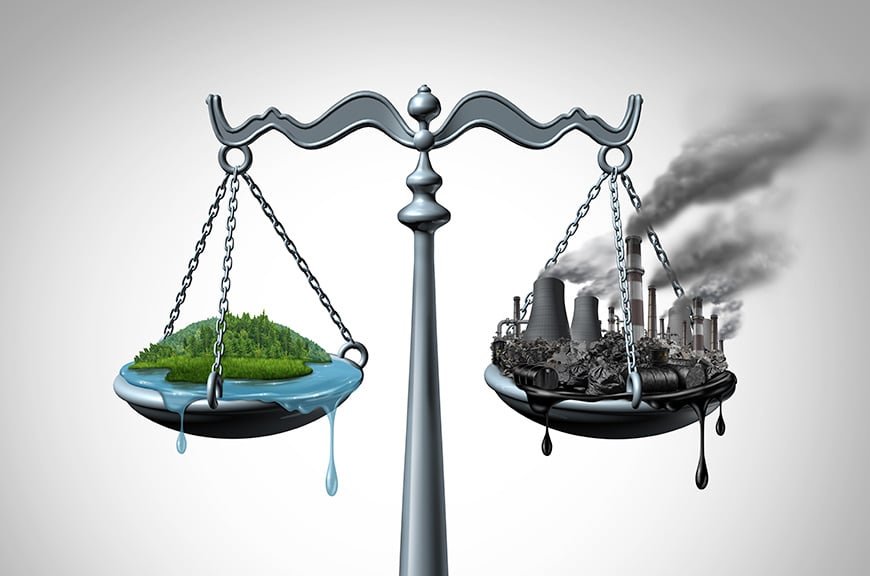The role of the IPCC in climate law and climate justice
The Intergovernmental Panel on Climate Change (IPCC) is a well-known organisation that assesses the risks of climate change based on the status quo of scientific research. The IPCC was established in 1988 by the United Nations Environment Programme (UNEP) and the World Meteorological Organisation (WMO). The reports issued by the IPCC are highly regarded worldwide and play an important role in climate jurisprudence. This article aims to highlight these aspects of the IPCC.
The function of the IPCC
The IPCC’s objective is to provide accurate information on climate change. They do this by producing reports every 5 to 6 years. The IPCC does not conduct research itself, but writes these reports based on existing scientific research and literature where they present the state of the science of climate change, what the socio-economic impacts are and what the possible response strategies are to these changes. The members of the IPCC have different backgrounds. They come from universities, research centres, businesses and environmental organisations all over the world.
These reports, also called assessments, are written by hundreds of leading scientists around the world who contribute their time and expertise as Coordinating Lead Authors and Lead Authors. Other experts are also recruited to provide additional expertise in specific areas as Contributing Authors. The IPCC assessments undergo multiple rounds of drafting and review to ensure they are comprehensive, objective and produced in an open and transparent manner. Thousands of other experts contribute to the reports by acting as reviewers, ensuring that the reports reflect the full range of views in the scientific community.
IPCC and policy
The assessments are also of great influence to policymakers. The IPCC ensures that the most relevant and up-to-date information from the scientific research on climate change is always available to policymakers. The conclusions of the reports are summarised for policymakers. The Summary for Policymakers (SPM) is carefully reviewed by national governments. Many national and multinational governments use it as the basis for their climate change policies. Specifically their ‘Special Report on Global Warming of 1.5 °C’ was requested by the 2015 United Nations Climate Change Conference in Paris to provide an overview of the consequences of a 1.5 °C warming compared to 2 °C. This report is in line with the Paris Climate Agreement goal of keeping climate change well below 2°C and preferably below 1.5°C. This report shows that stringent emission reductions are required to meet the lower climate target, but that some dangerous impacts can be mitigated. This shows that the objectives of climate legislation are thus scientifically based on the assessments of the IPCC.
IPCC and climate justice
IPCC reports also play a role in numerous climate cases. Because the reports provide a comprehensive account of the scientific consensus and the degree of certainty thereof, they are used as a means to factually support the legal elements in the claims. In tort law, for example, the reports can provide a basis for the damage criterion and causation. For example, the IPCC indicates that global warming is caused by greenhouse gases and that, moreover, it is very likely that the main cause of this is human activity (such as deforestation, burning of fossil fuels and (livestock) agriculture). Moreover, the IPCC explains the damage caused by climate change. Nevertheless, this is only a starting point in legal proceedings, as the concrete damage of climate change that is relevant to the case is more difficult to prove. An example of the IPCC’s role in climate justice is the high degree of certainty they have established that the retreat of glaciers in South America is linked to anthropogenic climate change, which is argued in the German case Saúl Luciano Lliuya v RWE. Another example is the argument of Milieudefensie c.s. in their climate case against Royal Dutch Shell PLC, according to which there is a threat because Shell’s policy amounts to a global warming of more than 2°C, which, according to the IPCC, will lead to dangerous consequences.
In short, the IPCC is a body with high authority on climate change. In their assessments, they summarise the scientific consensus and the degree of certainty about it approximately every five years. These reports are used by policymakers all over the world when formulating their climate policies. In addition, the IPCC reports play an important role in the establishment of the facts in climate case litigation.
Do you still have questions after reading this article? Then please contact Law & More. Our lawyers are specialised in the field of sustainability and will be happy to help you.





